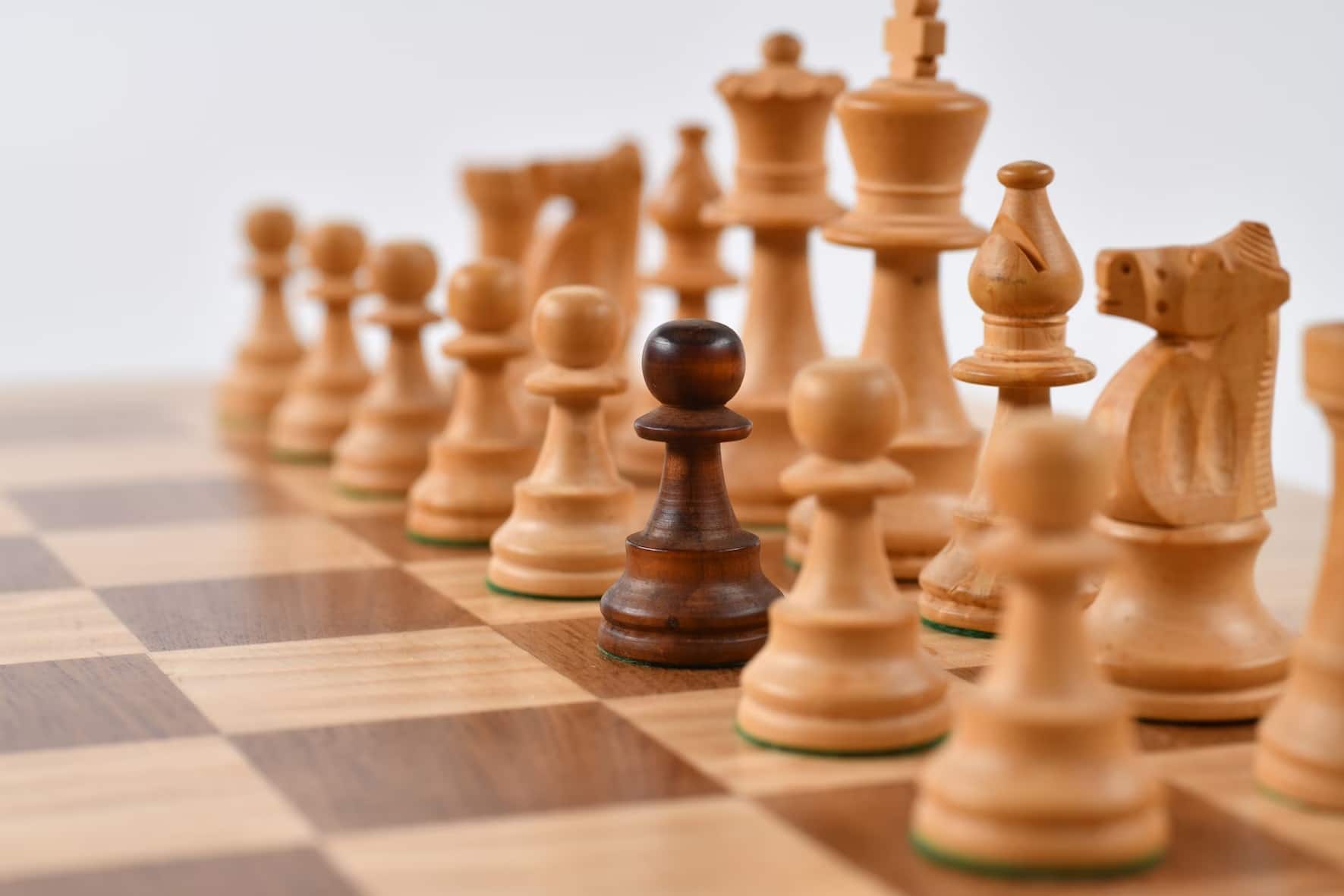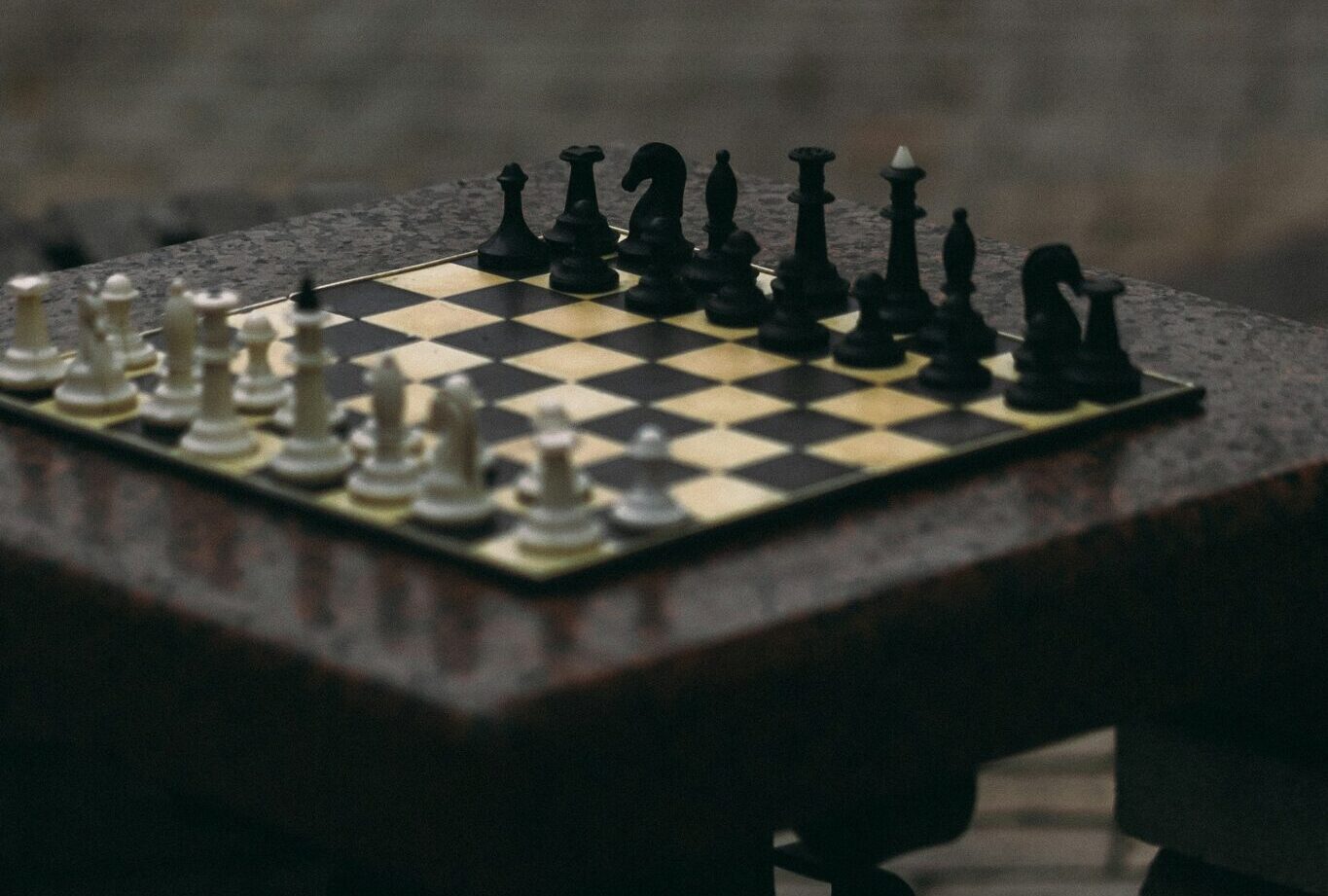At first glance, chess and football might seem worlds apart: one is the epitome of a mental duel, calm and calculated, while the other is a display of physical skill, passion, and team strategy. However, both share a common core where match analysis and predictions play fundamental roles. Statistics and mathematics stand as pillars in the construction of winning strategies, allowing players and coaches to unveil patterns and predict the opponent's behavior. In this text, we will see how, through the application of these scientific disciplines, it is possible to transform the uncertainty of outcomes into calculated opportunities, providing a new approach to understanding and improving in both games.

Table of Contents
The mathematics of chess
Chess, known as the “game of kings”, is a fertile field for mathematical analysis due to its strategic nature and the countless possibilities it offers. With more possible moves than atoms in the observable universe, the task of calculating every possible game is monumental. However, mathematicians and programmers have developed algorithms that, by using game theory and combinatorial optimisation, can foresee possible outcomes and suggest the best course of action. These analysis systems have not only improved the play of humans but also created some of the most advanced chess machines in the world, capable of competing (and beating) world champions.
Statistics in football
In football, on the other hand, the analysis goes far beyond the final score. Statisticians use predictive models to analyse everything from pass effectiveness to the likelihood of scoring from different game situations. These analyses are based on collecting and studying large volumes of data, including player positioning, ball possession, and game tactics. With this information, teams can improve their performance, adjusting their strategies to maximise the chances of success. Additionally, forecasters use these statistics to predict match outcomes, offering a more scientific perspective on the potential conclusion of an encounter.
Game theory and sports analysis
In both chess and football, game theory plays a crucial role in formulating winning strategies. This branch of mathematics analyses strategic decisions among two or more adversaries, where the outcome for each participant depends on the choices of the others. In chess, this manifests in anticipating moves and counter-moves, while in football, it is reflected in the choice of tactical formations and the decision of when to attack or defend. The application of game theory helps coaches and players make more informed decisions, increasing the chances of obtaining a favourable outcome.
On the other hand, when we talk about predictive analysis, we must know that it combines advanced statistics, data modelling, and machine learning to predict future outcomes based on historical data. In chess, this can mean analysing past games of an opponent to anticipate their moves. In football, it translates into assessing the performance of teams and players under varied conditions to estimate the outcomes of future matches. This approach not only improves training and preparation but is also invaluable for the gaming industry and fans looking to better understand the odds of their favourite teams and players.
It's worth mentioning that the growing interest in sports analysis has led to the creation of educational programs dedicated to training the next generation of analysts. These programs focus not only on the mathematical and statistical skills needed but also on understanding the sport from a tactical and strategic perspective. The combination of theoretical and practical knowledge prepares students to make significant contributions to professional teams, sports clubs, and performance analysis organisations.
A balance between art and science
Despite its many advantages, sports analysis is not without challenges and ethical questions. The collection and use of personal data from athletes raise concerns about privacy and information security. Additionally, excessive reliance on analyses could potentially dehumanise the sport, reducing it to mere numbers and statistics. It is crucial to find a balance that respects the integrity of the sport and its participants while harnessing the potential of analysis technologies.
As we have seen, mathematical and statistical analysis in sports like chess and football represents a fusion between the art of competition and the science of prediction. As these disciplines continue to evolve, the ability to analyse and foresee the outcome of games and matches becomes increasingly sophisticated. However, it's essential to remember that at the heart of every game, match, or sports encounter, lies passion and the human spirit, elements that no analysis can completely predict. We must not forget that the beauty of sport lies in its unpredictability and the moments of spontaneous genius that arise both on and off the field of play.






